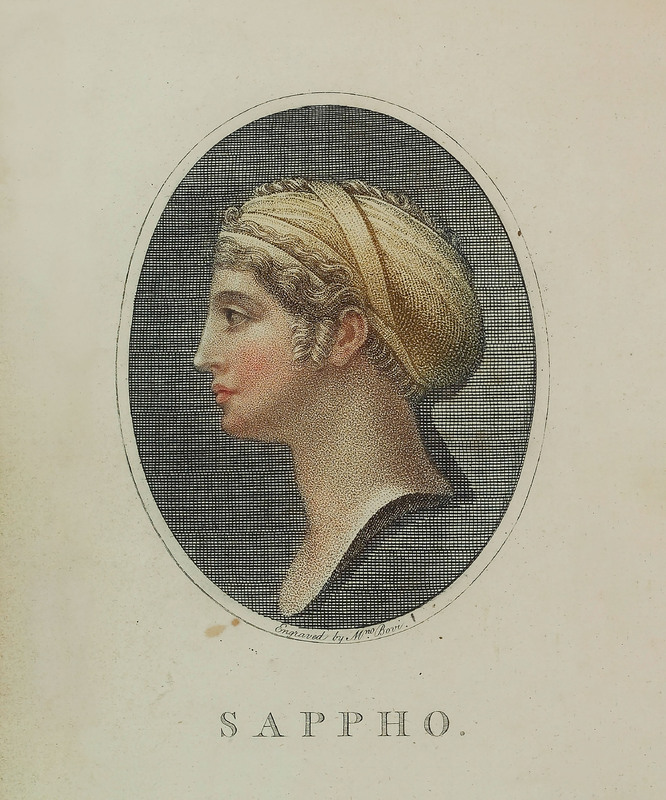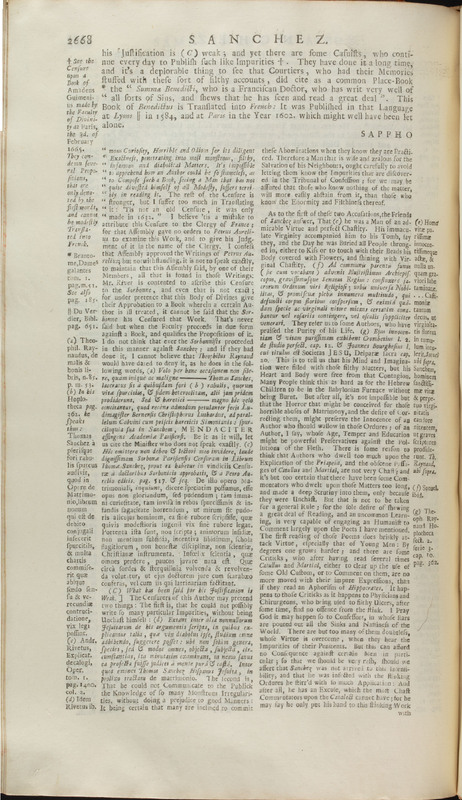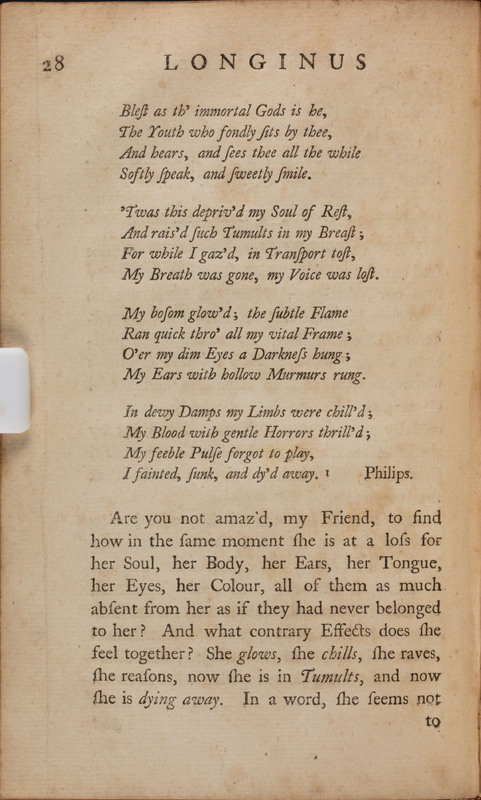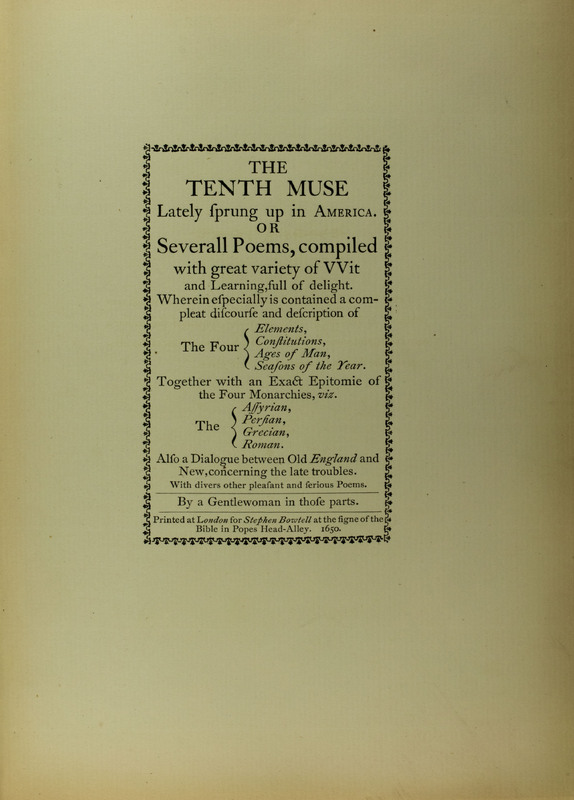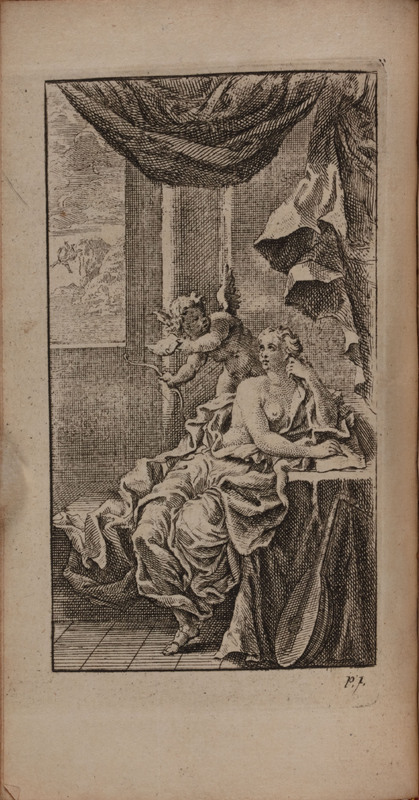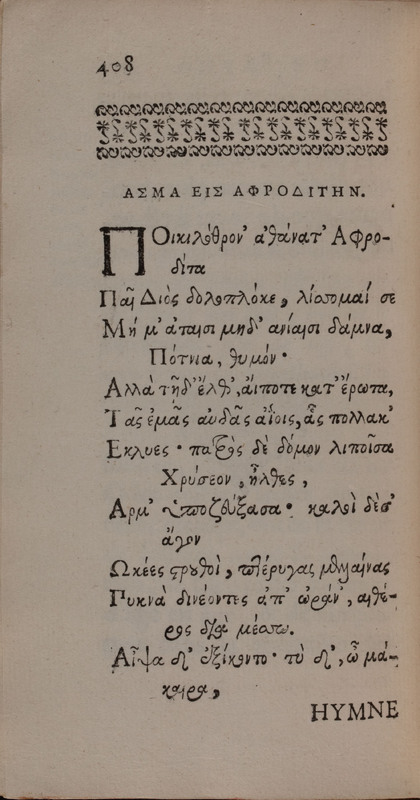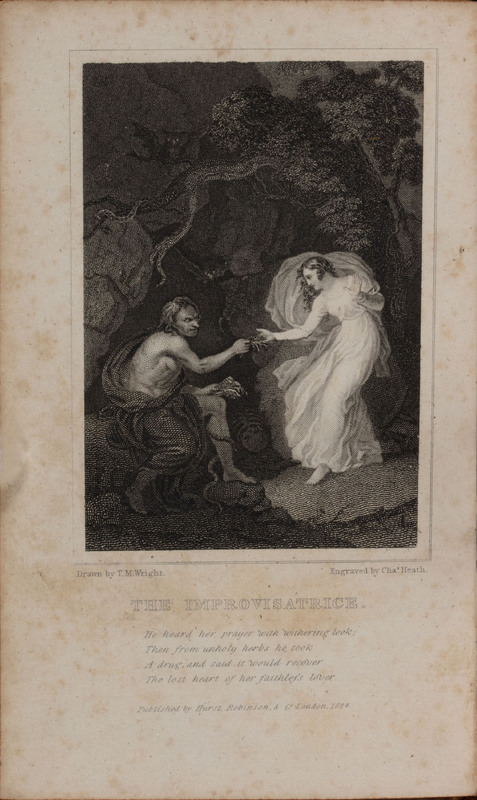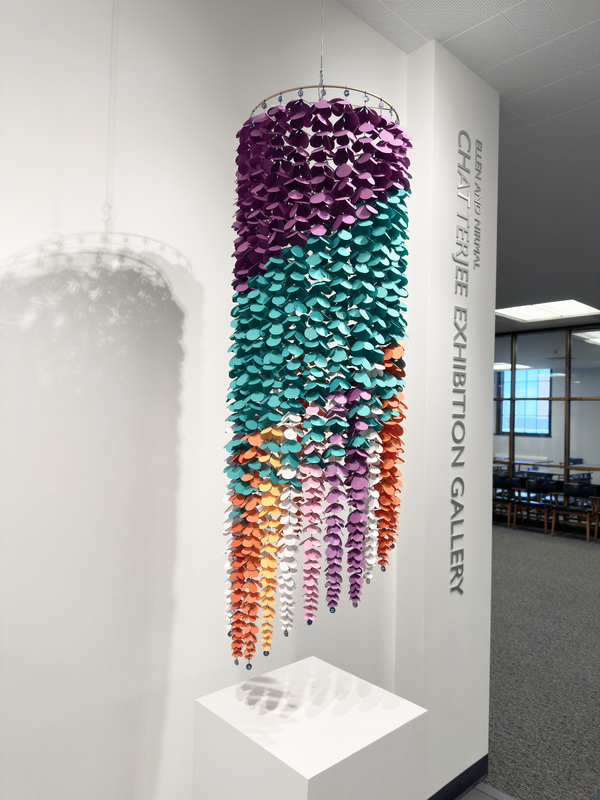Exhibit Contents
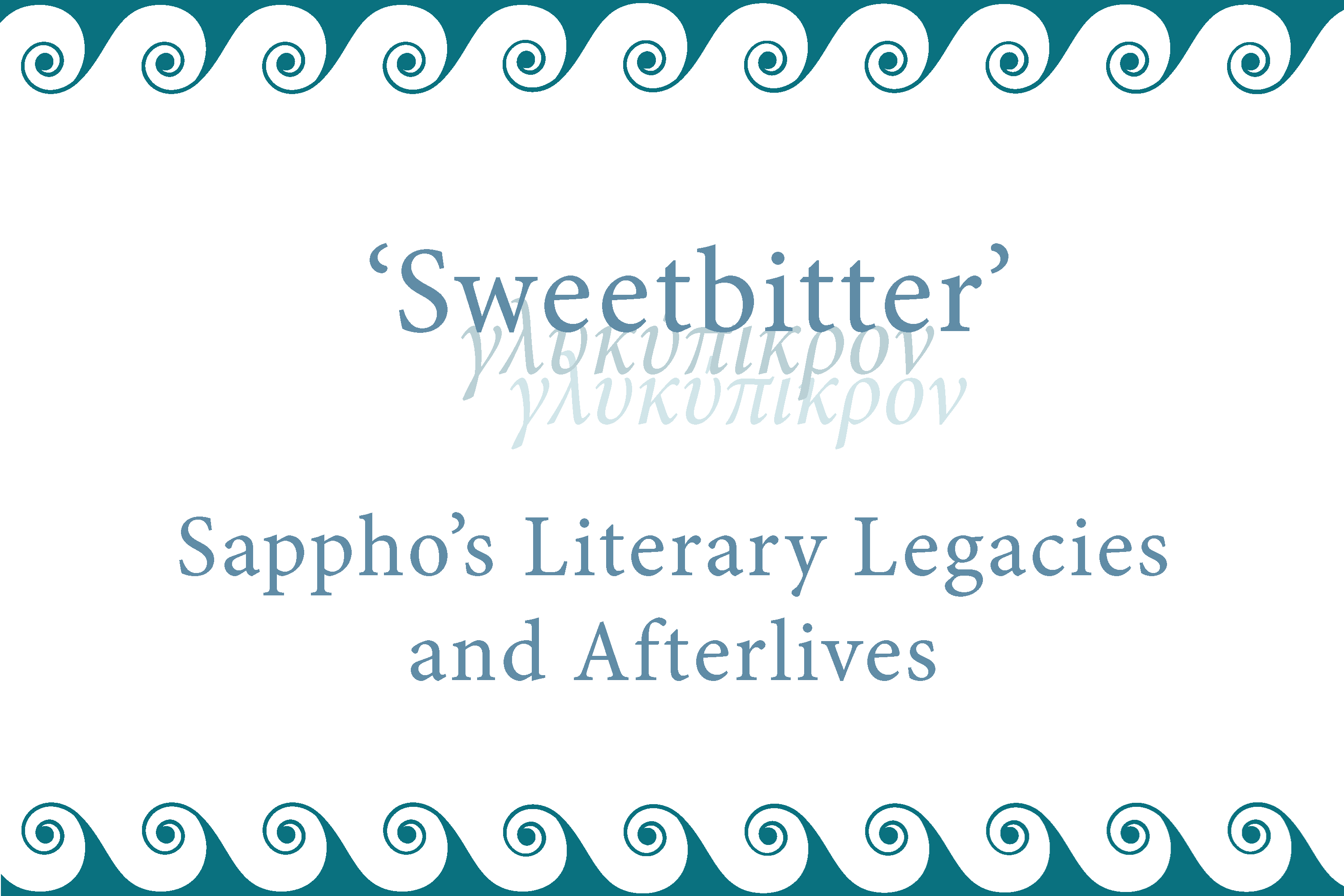
μνάσασθαί τινά φαιμι † καὶ ἕτερον† ἀμμέων
They will remember us in the future, I say… someone will.
Sappho, Fr. 147
trans. by Panagiotis Sotiroudis and Eleonora Mylli, adapted by Malina Infante
“Bittersweet” is a common term for describing romantic love (among other things), but the actual Greek word from whence the phrase originates is glukupikron (γλυκύπικρον), “sweetbitter.” The ancient poet Sappho coined the phrase in one of her most evocative verses, still striking us to the heart nearly three millennia later. It is a mixed feeling of pleasure and pain, first the one and then the other, inextricable, but the order in which they are experienced can, arguably, change the overall experience.
Who was Sappho? As with so many ancient figures, she is more legend than person today, her name and home used to describe queer love in both praiseworthy and derogatory fashion. When facts are few, we must focus on the certain, and what we do know is that Sappho was a remarkable poet, though the majority of her work has been lost. Surviving fragments in concert with extant examples of literary praise and analysis speak to an author who was widely recognized and renowned. “Sappho utters words really mingled with fire,and gives vent through her song to the heat that consumes her heart,” wrote the ancient historian and biographer Plutarch (ca. 40-120 CE). Roman poets such as Catullus (ca. 84-54 BCE) and Ovid (43 BCE-c. 18 CE) freely adapted her verse to their own compositions. Medieval depictions surround Sappho with the accoutrements of the highly educated, including books, pens, and musical instruments such as the lute as well as the lyre, and she was a not uncommon subject in both early modern and nineteenth century art and poetry. In the twentieth century, she was adopted by the avant-garde and feminist movements to deride as well as celebrate queer sexuality. Sappho is iconic.
“The destruction of the past is perhaps the greatest of all crimes.”
― Simone Weil
Exhibit Contents
Acknowledgements
The Fall 2025 exhibit was curated by Cait Coker. Design by Chloe Ottenhoff and Carrie Lingscheit.
Special thanks are due to Ana D. Rodriguez, Marco Valladares-Perez, Rachael Johns, Tony Hynes, and Lynne M. Thomas. Especial appreciation goes to
Carrie Lingscheit, Chloe Ottenhoff, Dana Miller, and Caroline Szylowicz for their creativity and collaboration. Thanks also to Elias Petrou, Dan Leon, and
Joy Reeber for their moral support and Greek language corrections!
Translation credits: This project could not have come to full fruition without the translations and adaptations of poetry created by Malina Infante, Elissa B.G. Mullins, Eleonora Mylli, Jason Pfister, Panagiotis Sotiroudis, and Jillian White. Σᾶς εὐχαριστῶ εἰλικρινά ἐκ βάθους καρδίας!
